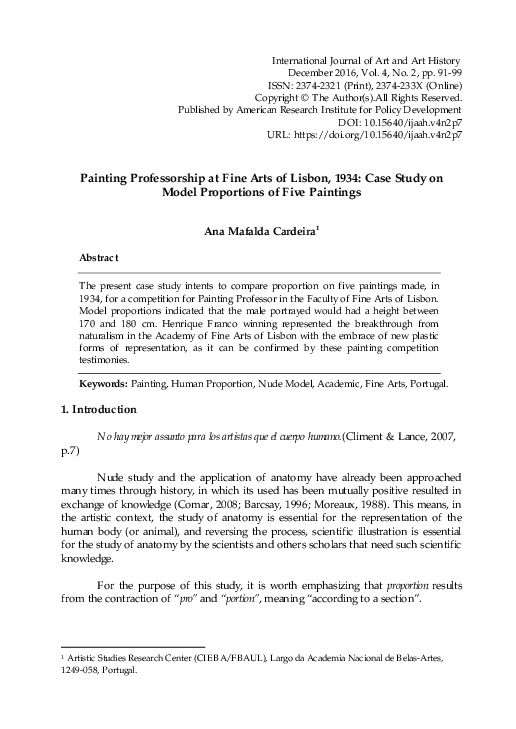Section 230 And The Sale Of Banned Chemicals On EBay: A Legal Update

Table of Contents
Section 230: A Foundation of Internet Freedom (and a Source of Controversy)?
Section 230 of the Communications Decency Act of 1996 is a cornerstone of internet freedom in the United States. It provides legal protection to online platforms, shielding them from liability for content created by their users. This essentially means that websites and online marketplaces are not treated as publishers or speakers responsible for the content posted by their users. However, this protection is not absolute and has become a significant source of debate.
-
Definition of Section 230 and its key provisions: Section 230 establishes that "No provider or user of an interactive computer service shall be treated as the publisher or speaker of any information provided by another information content provider." This key provision protects platforms from being held liable for user-generated content, even if that content is defamatory or illegal.
-
How it applies to online marketplaces like eBay: eBay, as an online marketplace, relies heavily on Section 230. It allows eBay to host millions of listings from various sellers without being directly responsible for the legality or safety of every item offered.
-
Arguments for and against Section 230's application to illegal activities: Proponents argue Section 230 fosters innovation and free speech online. Critics contend it shields platforms from responsibility for harmful content, including the sale of illegal substances like banned chemicals. The debate centers around balancing free speech with public safety and the need to hold platforms accountable for facilitating illegal activities.
-
Current legal challenges to Section 230: Section 230 is frequently under legal scrutiny. Lawmakers are continually debating its scope and whether it provides sufficient protection against harmful online content, including the illegal sale of goods. These challenges highlight the ongoing tension between protecting online platforms and addressing the risks posed by illegal activities facilitated through these platforms.
eBay's Policies Regarding Banned Substances
eBay maintains a comprehensive list of prohibited items, including a wide range of banned chemicals. These restrictions are designed to comply with various federal and state laws, as well as to protect its users and maintain a safe online marketplace.
-
Specific examples of chemicals banned on eBay: The list encompasses controlled substances, precursors for drug manufacturing, highly toxic materials, and chemicals that pose significant environmental or health risks. Specific examples vary and are subject to change, reflecting evolving regulations.
-
eBay's enforcement mechanisms for identifying and removing listings of banned items: eBay employs a combination of automated systems and human review to identify and remove listings of prohibited items. This includes keyword filtering, image recognition, and user reporting mechanisms.
-
eBay's liability under its own terms of service: eBay's terms of service clearly outline the consequences for sellers violating its policies, including account suspension and legal action. These terms of service define the responsibilities of the seller and the limitations of eBay's liability.
-
Reporting mechanisms for users to flag potentially illegal listings: eBay provides users with tools to report listings they suspect violate its policies, enabling proactive identification and removal of banned items. This user-driven reporting system complements eBay's automated systems.
Legal Liability for Sellers of Banned Chemicals on eBay
Selling banned chemicals on eBay carries severe legal consequences for individual sellers. These consequences extend beyond eBay's internal policies to encompass federal and state laws governing the sale and distribution of controlled substances.
-
Federal and state laws governing the sale and distribution of controlled substances: Violation of these laws can lead to significant penalties, depending on the specific substance and the nature of the violation. These laws vary by jurisdiction, requiring sellers to understand the regulations in their respective states and the federal Controlled Substances Act.
-
Penalties for violating these laws (fines, imprisonment): Penalties can range from hefty fines to lengthy prison sentences, depending on the severity of the offense. These penalties reflect the seriousness of trafficking in banned chemicals.
-
Civil liability for harm caused by the misuse of the banned chemicals: Sellers can face civil lawsuits if their actions lead to harm caused by the misuse of the banned chemicals sold. This includes responsibility for damages, injuries, and other related costs.
-
The role of intent in determining liability: While intent plays a role in determining the severity of penalties, it is not always a required element for conviction under relevant laws. Ignorance of the law is generally not a valid defense.
eBay's Responsibility Under Section 230 and Beyond
eBay's responsibility regarding the sale of banned chemicals is a complex area, particularly considering the protection offered by Section 230. While Section 230 shields eBay from liability for user-generated content, it doesn't grant complete immunity.
-
The "good samaritan" provision of Section 230 and its relevance to proactive content moderation: Section 230 encourages platforms to proactively remove illegal content. eBay's efforts in this regard could strengthen its Section 230 defense.
-
Arguments for holding eBay accountable for failing to prevent the sale of banned substances: Critics argue that platforms have a responsibility to actively prevent the sale of illegal goods, even with Section 230 protection. This argument highlights the tension between platform immunity and the need to address harmful online activities.
-
Potential legal challenges to eBay's interpretation and enforcement of its policies: eBay’s policies and their enforcement are subject to legal challenge. Consistent and effective enforcement is crucial in mitigating legal risks.
-
The balance between free speech and public safety: The core of the debate lies in balancing the principles of free speech and the paramount need to protect public safety from the harmful effects of illegal substances.
Navigating the Legal Maze: Best Practices for Online Marketplaces and Sellers
To minimize legal risks, both online marketplaces and sellers must implement proactive measures to prevent the sale of banned chemicals.
-
Implementing robust screening and monitoring systems: This includes advanced technology solutions for automated detection of prohibited items.
-
Developing clear policies and procedures: Comprehensive policies and easy-to-understand procedures are essential for both marketplace and sellers.
-
Investing in technology to detect illegal listings: Advanced technologies like AI and machine learning can improve the efficiency of detection and removal.
-
Cooperating with law enforcement agencies: Close cooperation helps in identifying and addressing the sale of illegal substances effectively.
-
Providing comprehensive seller training: Educating sellers about legal requirements is crucial to prevent unintentional violations.
Conclusion
This article has highlighted the intricate legal relationship between Section 230, online marketplaces like eBay, and the sale of banned chemicals. While Section 230 offers significant protection for platforms, it doesn't grant immunity from liability for facilitating illegal activity. Both eBay and its sellers bear a responsibility to ensure compliance with relevant laws and regulations. Understanding the complexities of Section 230 and proactively implementing best practices are crucial to mitigating legal risks associated with the sale of banned chemicals online. To stay informed about the evolving legal landscape surrounding Section 230 and the sale of banned chemicals on online platforms, continue to research relevant legal updates and industry best practices. Understanding the implications of Section 230 is vital for ensuring safe and legal online commerce.

Featured Posts
-
 Filming Alligators In Floridas Crystal Clear Springs
May 12, 2025
Filming Alligators In Floridas Crystal Clear Springs
May 12, 2025 -
 The Vma Simulcast On Cbs A Turning Point For Mtv
May 12, 2025
The Vma Simulcast On Cbs A Turning Point For Mtv
May 12, 2025 -
 Sheehans Reaction Ipswich Towns Focus Remains Strong
May 12, 2025
Sheehans Reaction Ipswich Towns Focus Remains Strong
May 12, 2025 -
 Augusta National Rory Mc Ilroys Daughters Impressive Putt Jowhar News
May 12, 2025
Augusta National Rory Mc Ilroys Daughters Impressive Putt Jowhar News
May 12, 2025 -
 One True John Wick A Critical Analysis Of The Franchise
May 12, 2025
One True John Wick A Critical Analysis Of The Franchise
May 12, 2025
Latest Posts
-
 Alarm An Braunschweiger Schule Kinder Evakuiert
May 13, 2025
Alarm An Braunschweiger Schule Kinder Evakuiert
May 13, 2025 -
 Applications Invited Fine Arts Professorship Specializing In Spatial Design
May 13, 2025
Applications Invited Fine Arts Professorship Specializing In Spatial Design
May 13, 2025 -
 Spatial Concepts In Fine Arts Professorship Opportunities
May 13, 2025
Spatial Concepts In Fine Arts Professorship Opportunities
May 13, 2025 -
 Seeking A Professorship In Fine Arts Focus On Spatial Concepts
May 13, 2025
Seeking A Professorship In Fine Arts Focus On Spatial Concepts
May 13, 2025 -
 Professorship In Fine Arts Exploring Spatial Concepts
May 13, 2025
Professorship In Fine Arts Exploring Spatial Concepts
May 13, 2025
